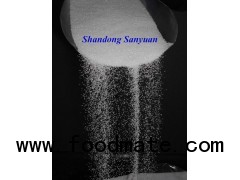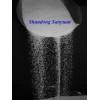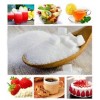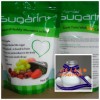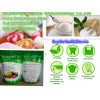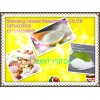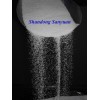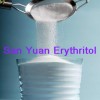How Sweet is Erythritol?
Erythritol is approximately 70 percent as sweet as table sugar (sucrose). Some manufacturers, however, claim that their erythritol products are as sweet as sugar.
How is Erythritol Made?
Erythritol is usually made from plant sugars. Sugar is mixed with water and then fermented with a natural culture into erythritol. It is then filtered, allowed to crystallize, and then dried. The finished product is white granules or powder that resembles sugar.
Why Do People Use Erythritol?
Erythritol has almost no calories. In the United States, erythritol is labeled as having 0.2 calories per gram, which is 95 percent fewer calories than sugar. In Japan, erythritol is labeled as having zero calories.
Erythritol has not been found to affect blood sugar or insulin levels and has a zero glycemic index.
Erthyritol has a clean, sweet taste. I've found that it’s more similar in taste to sugar than other natural sweeteners such as stevia (which can be bitter).
In reasonable amounts, erythritol doesn’t cause digestive upset and diarrhea that other sugar alcohols like sorbitol and xylitol are known to cause. This is because erythritol is a smaller molecule and 90 percent of erythritol is absorbed in the small intestine and for the most part excreted unchanged in urine. This quality makes erythritol unique among the sugar alcohols.
Erythritol isn’t metabolized by oral bacteria, which means that it doesn’t contribute to tooth decay.
Erythritol was approved for use as a sugar substitute in Japan in 1990. In the United States, it is classified as being Generally Recognized As Safe (GRAS) since 1997. It was approved in Australia and New Zealand in 1999.


